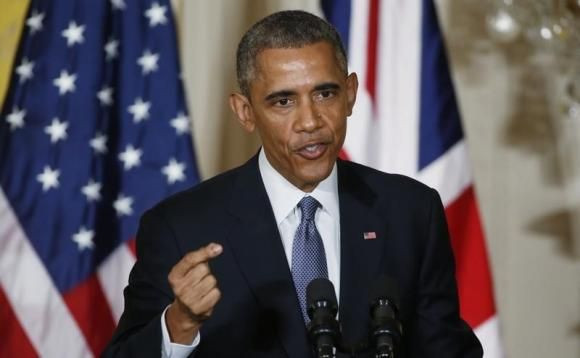Obama Says Stricter Cybersecurity Laws Needed To Combat Hackers In His State Of The Union Speech

U.S. President Barack Obama said that new cybersecurity laws are necessary to address hacking, identity theft and cyberwarfare in his annual State of the Union address on Tuesday evening. Critics say the new laws are overly harsh and could impede computer security research in the U.S.
Obama also asked Congress during the Tuesday night speech to Congress to pass laws to protect consumers affected by a data breach and enable better communication between the government and companies about cyberthreats. The president said the U.S. is not able to fully protect its citizens’ privacy online, including the private data of children.
“No foreign nation, no hacker, should be able to shut down our networks, steal our trade secrets, or invade the privacy of American families,” Obama said in remarks prepared ahead of his State of the Union address. “We are making sure our government integrates intelligence to combat cyberthreats, just as we have done to combat terrorism.”
Recent events have highlighted the need for government action, Obama said. The hacking of Sony Pictures Entertainment and data breaches at major retailers, are evidence that if the U.S. doesn't act, "we’ll leave our nation and our economy vulnerable. If we do, we can continue to protect the technologies that have unleashed untold opportunities for people around the globe.”
The White House has said the laws will focus on communication between the government and private industry on emerging cyber threats, requiring businesses to notify individuals about data breaches and enacting stricter laws to punish cyber criminals. Critics say that the laws overreach -- a 10-year penalty for sharing an HBO Go password, for example -- and could have a negative effect on the nation's cybersecurity.
"Under the Administration's proposal, the Department of Justice could get creative and threaten up to 10 years in prison if you know your friend will use one of your passwords you shared with them—even if you have no 'intent to defraud,' important limiting language the Administration wants removed from the statute," said a statement from the Electronic Frontier Foundation (EFF), an Internet freedom advocacy group.
The most serious issue with Obama's cybersecurity proposal is that an action that "exceeds authorized access" on a computer becomes a criminal act. The EFF claims the new laws could "chill the computer security research that is a central part of our best defense against computer crime."
© Copyright IBTimes 2025. All rights reserved.





















